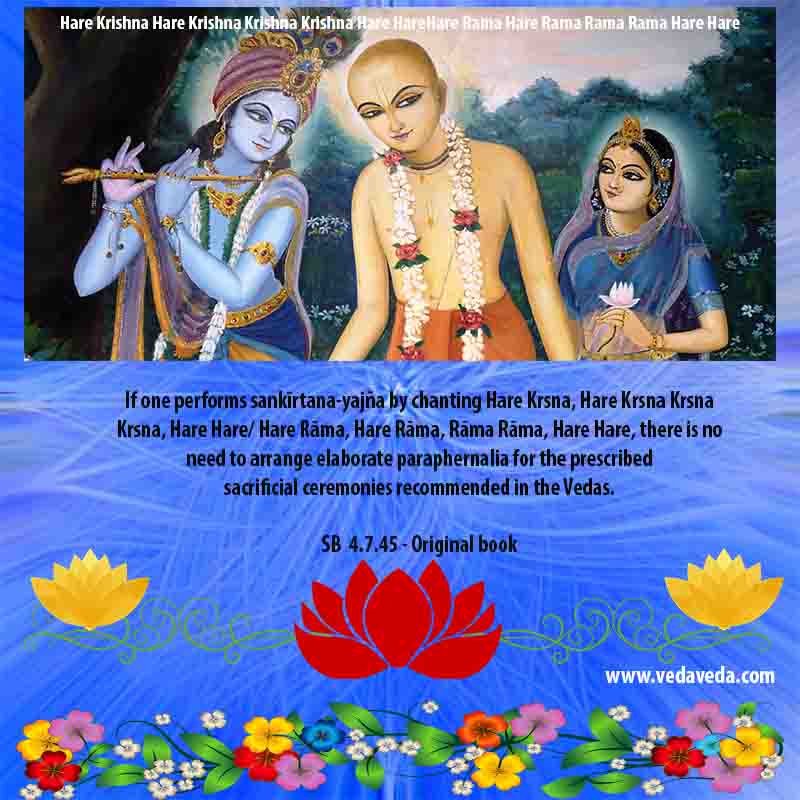
TRANSLATION
The brāhmaṇas said: Dear Lord, You are sacrifice personified. You are the offering of clarified butter, You are the fire, You are the chanting of Vedic hymns by which the sacrifice is conducted, You are the fuel, You are the flame, You are the kuśa grass, and You are the sacrificial pots. You are the priests who perform the yajña, You are the demigods headed by Indra, and You are the sacrificial animal. Everything that is sacrificed is You or Your energy.
PURPORT
In this statement Lord Viṣṇu’s all-pervasiveness is partially explained. It is said in the Viṣṇu Purāṇa that as a fire situated in one place emanates its heat and illumination everywhere, so whatever we see within the material or spiritual worlds is nothing but a manifestation of different energies emanating from the Supreme Personality of Godhead. The brāhmaṇas’ statement is that Lord Viṣṇu is everything—the fire, the offering, the clarified butter, the utensils, the place of sacrifice and the kuśa. He is everything. It is confirmed herein that the performance of saṅkīrtana-yajña in this age is as good as all other yajñas in all other ages. If one performs saṅkīrtana-yajña by chanting Hare Kṛṣṇa, Hare Kṛṣṇa, Kṛṣṇa Kṛṣṇa, Hare Hare/ Hare Rāma, Hare Rāma, Rāma Rāma, Hare Hare, there is no need to arrange elaborate paraphernalia for the prescribed sacrificial ceremonies recommended in the Vedas. In the chant of the holy names, Hare and Kṛṣṇa, Hare means the energy of Kṛṣṇa, and Kṛṣṇa is the viṣṇu-tattva. Combined together they are everything. In this age, persons are harassed by the influence of Kali-yuga and cannot arrange for all the requisite paraphernalia for performing sacrifice as recommended in the Vedas. But if one simply chants Hare Kṛṣṇa, it is to be understood that he is performing all kinds of yajña because there is nothing within our vision except Hare (the energy of Kṛṣṇa) and Kṛṣṇa. There is no difference between Kṛṣṇa and His energies. Thus since everything is a manifestation of His energy, it is to be understood that everything is Kṛṣṇa. One simply has to accept everything in Kṛṣṇa consciousness, and he is a liberated person. One should not misunderstand that because everything is Kṛṣṇa, Kṛṣṇa has no personal identity. Kṛṣṇa is so full that in spite of keeping Himself separate from everything by His energy, He is everything. This is confirmed in Bhagavad-gītā, Ninth Chapter. He is spread throughout the creation as everything, but still He is not everything. The philosophy recommended by Lord Caitanya is that He is simultaneously one and different.

